The Future of Privacy Coins in a Regulated World

Privacy coins are facing their toughest test yet, and if you think this is just a niche issue for hardcore crypto geeks, think again—regulators are coming hard for private transactions, and the fallout touches anyone who cares about keeping their financial life out of the spotlight. The story isn’t about coins being “good” or “bad,” it’s about what happens to everyone’s privacy once the rules start tightening. Watching favorite privacy coins disappear from exchanges, seeing politicians and regulators treating privacy like something suspicious—this hits home. But there’s real hope: projects and communities are pushing back with clever tricks, new tech, and a relentless drive to stay one step ahead. If you use crypto for more than just speculation, what happens to privacy coins affects you, too. Want to know what’s really at stake and what might keep your crypto life private in a world obsessed with control? Let’s talk about what’s happening—and why it matters.
Can privacy coins really survive all the new crypto rules? It’s a burning question I hear nearly every day, especially as governments get more serious about clamping down on digital assets. If you’ve got any crypto in your wallet, it’s probably something you’ve thought about too. Let’s see what the future might look like for privacy coins as regulation kicks into high gear. Spoiler: this topic is juicier than you think, and it affects way more than just hardcore privacy fans.
Why Privacy Coins Are Running Into Trouble
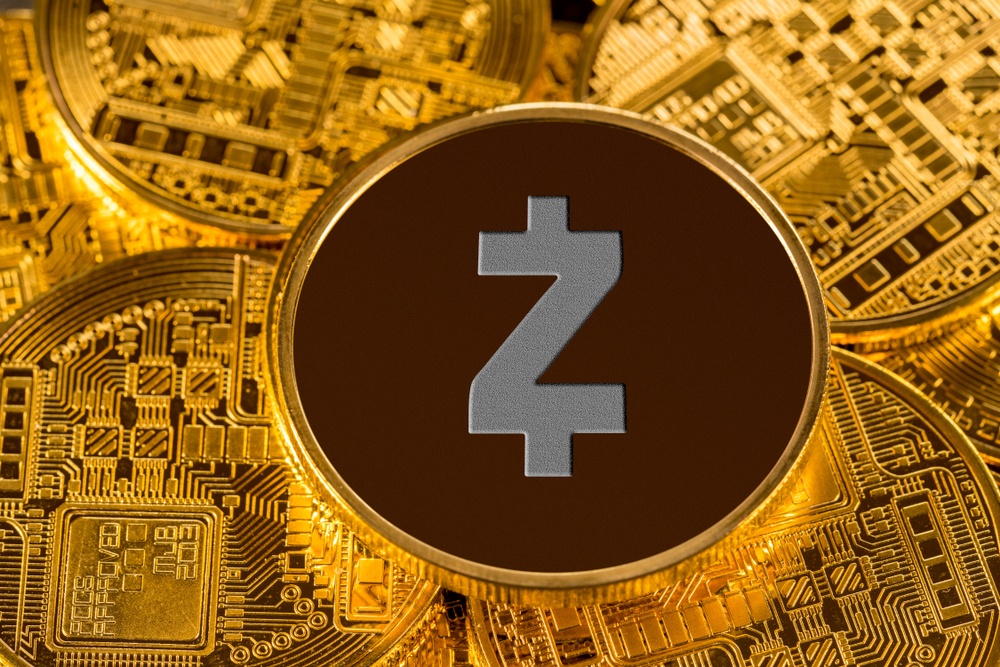
Let’s get straight to the point. As countries crack down on cryptocurrency, privacy coins like Monero (XMR) and ZCash (ZEC) have become the focus of heated debate—and not in a good way. Why? Their defining superpower is anonymous transactions, making them an obvious target for politicians and law enforcement.
Here’s what’s going on:
- Crypto exchanges are removing privacy coins: Big names like Binance, OKX, and Huobi have delisted or restricted trading of coins like Monero, Dash, and Zcash due to “regulatory compliance.”
- Regulators raising alarms: From the European Union’s push for tighter anti-money laundering rules to the US FATF “Travel Rule,” there’s rising pressure everywhere.
- Concerns about illegal use: Various studies, including recent reports from Chainalysis, point out how privacy coins have a share of activity linked to mixing and privacy-preserving tools—although it’s way less than the hype suggests.
It’s not a stretch to say privacy coins are in the regulatory crosshairs. But does that mean they’re doomed? Not necessarily.
There’s a Way Forward
Don’t count privacy coins out just yet. Developers and communities aren’t sitting still. They’re already coming up with clever fixes and new approaches to stay alive in an industry that changes overnight.
- Some projects are exploring selective disclosure—a fancy way of saying users can choose to share transaction details for audits or compliance (check out Zcash’s “view keys” as an example).
- Others are working on hybrid models, which might strike a balance between privacy and regulatory demands.
- Grassroots communities rally around educational projects, open-source code, and privacy-first wallets.
It’s basically an arms race: as governments tighten the rules, privacy innovators counter with fresh technology and ideas.
FAQ: What about anonymity and legal issues?
I get these questions a lot: “Are privacy coins even legal?” “Is it safe to hold them?” Some coins are legal in certain jurisdictions, while others are practically banned or heavily restricted in places like South Korea or Japan. Most countries don’t have blanket bans (yet), but regulators want more transparency—and that could make it tricky for exchanges or users.
As for safety, holding privacy coins generally isn’t a crime unless you break anti-money laundering laws or ignore tax reporting. But these lines are getting blurrier, especially with ever-changing rules. If you want rock-solid answers, you’ll need to keep an eye on updates from local regulators (or just wait for the next headline!).
Why This Matters for Everyday Crypto Users
You might think, “I’m not a privacy nut. Why does this matter for me?” Well, it’s not just about criminals or cypherpunks. If you use crypto for sensitive transactions, donations, or just value your financial privacy, shifts in privacy coin rules directly affect you. And the crackdown on privacy coins often has ripple effects for the whole crypto ecosystem—think forced KYC, stricter withdrawal limits, and surveillance tech creeping into regular crypto apps.
Ever asked yourself what separates privacy coins from regular cryptocurrencies, or why people care so much about these private transactions? Hang tight, because next I’ll break down exactly what privacy coins are, how they work, and why they’ve become a hot topic all over again. You might be surprised at just how inventive—and important—these coins really are. Ready to brush up on privacy coins and why they matter? Let’s get into it!
What Are Privacy Coins, Anyway?
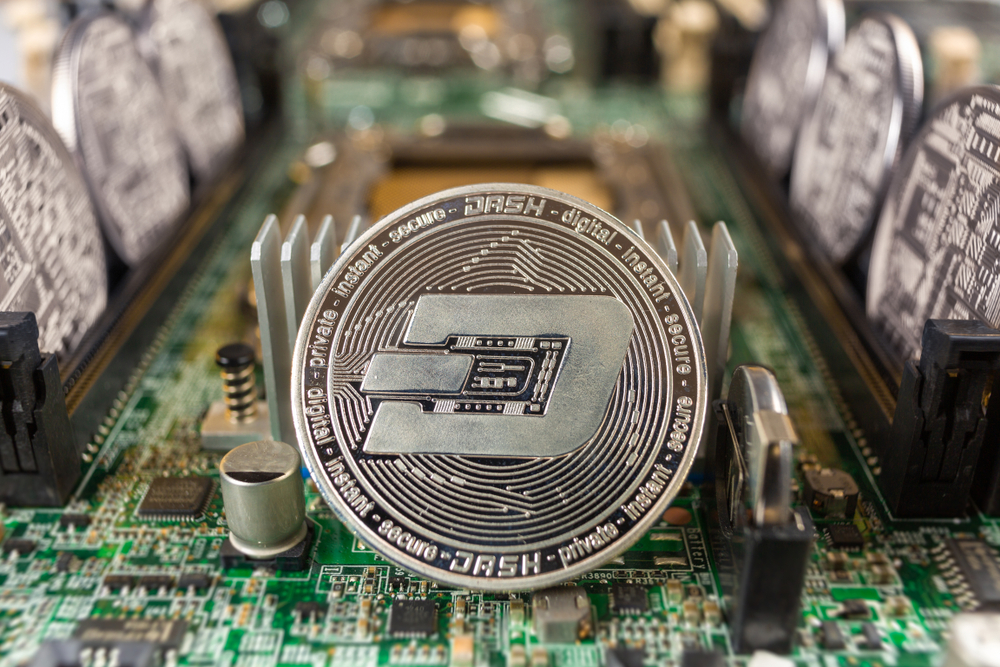
Think you know what privacy coins are? Maybe, maybe not. Let’s break it down. If you’ve only ever used big names like Bitcoin or Ethereum, you might be surprised at just how different privacy coins are under the hood. Privacy coins are built for one mission: giving people financial privacy. While regular cryptocurrencies are more transparent than cash (sometimes uncomfortably so), privacy coins are designed to let your transactions stay your business. That’s a pretty powerful change in a world where digital footprints are everywhere.
How They Work
Now, privacy coins aren’t just labeled private—they actually use clever tech that makes wallets and transactions much harder to trace. Here’s how some of the magic happens:
- Ring Signatures: Imagine you’re signing a check, but the bank can’t actually tell whose hand put the pen to the paper. That’s basically what Monero does with ring signatures, making it impossible to pinpoint the true sender.
- Stealth Addresses: With stealth addresses, every payment generates a random address for the recipient. It’s like getting a new bank account number every time someone pays you. Zcash does something similar, so no one can see how much you received or from whom.
- Zero-Knowledge Proofs: This sounds super high-tech, and it is. Zero-knowledge proofs let you prove a transaction happened (and is valid) without revealing any details. Think of it as saying, “Yes, I’m over 21, but you don’t get to see my birthday.” This technology is a game-changer for Zcash and others.
According to a 2023 study by CipherTrace, these privacy-enhancing tools make analyzing blockchains much trickier for anyone—from hackers to regulators. No wonder privacy coins get so much attention, for better or worse.
Types of Privacy Coins
There’s not just one privacy coin ruling the roost. A few have grabbed the spotlight, each offering their own spin on privacy:
- Monero (XMR): The classic privacy coin. Monero’s entire chain is private, thanks to ring signatures, stealth addresses, and RingCT (Ring Confidential Transactions). This is the go-to for anyone who wants real privacy out of the box.
- Zcash (ZEC): Zcash gives you options—public or private transactions—using its groundbreaking zero-knowledge proofs (called zk-SNARKs). It’s like a privacy switch you can flick on or off.
- Dash (DASH): While Dash isn’t fully private by default, it offers PrivateSend, a feature that mixes coins together to make tracking transactions way harder. This is more privacy-on-demand than baked-in.
Others like Beam and Grin use Mimblewimble, a protocol focused on lightweight, fast, and private transactions. And, trust me, the list is always growing—developers live to push the boundaries here.
Why People Value Privacy in Crypto
If all this sounds a bit techie, let’s zoom out. Why does all this privacy stuff actually matter?
For anyone who’s ever worried that “everything you do online is being watched,” privacy coins are a breath of fresh air. Maybe you’re someone just protecting your paycheck from prying eyes. Maybe you’re a business owner paying a supplier, or someone who’s simply not comfortable with your full transaction history being up for grabs.
I know users who picked privacy coins after buying crypto for a friend’s overseas medical fees—worried those payments might trigger account reviews or worse. Others just say, “Why should my neighbor know how much Bitcoin I bought last year?”
“Arguing that you don’t care about the right to privacy because you have nothing to hide is no different than saying you don’t care about free speech because you have nothing to say.” — Edward Snowden
It’s not just a tool for the paranoid. A 2022 survey from CoinDesk showed 64% of crypto holders admitted they cherish financial privacy, and almost half would switch to privacy coins for sensitive payments if the tech were easier to use.
So, is privacy in crypto only for a small group of users? Not really. It matters for anyone who wants choice. The big question is—what’s happening to privacy coins right now, and is all this technology actually making a difference in today’s market? Stick around—I’m about to crack open the real state of privacy coins in the next section, and some of the findings might seriously surprise you.
The Current State of Privacy Coins

Let’s be real—privacy coins have been through the wringer lately, but the story is anything but finished. Whether you’re a longtime Monero fan, just heard about Zcash for the first time, or you’re wondering where everyone’s actually using these coins, the landscape right now is wild, unpredictable, and honestly, pretty fascinating.
Exchange Listings and Restrictions
Not long ago, it was normal to find privacy coins on all the big-name exchanges. That’s changed—a lot. In the past year, we’ve seen a steady drip of announcements:
- Kraken dropped Monero trading for UK users due to regulatory pressure in early 2024.
- Binance followed suit in several EU countries, removing not only Monero but also Zcash and Dash alongside it.
- Bitstamp, OKX, and Huobi have joined the trend, quietly delisting privacy coins—sometimes with very little warning.
The main reason exchanges say “no” is uncertainty. Regulators want transparency, but privacy coins are built to make tracing transactions close to impossible. The legal headaches just aren’t worth the risk to many platforms. But it’s not total doom and gloom—smaller, peer-to-peer marketplaces, decentralized exchanges, and regional platforms still allow trading, especially where laws are less strict.
Stat alert: According to a Chainalysis report from late 2023, privacy coins now represent under 1% of all crypto exchange trading, but off-exchange activity and direct peer-to-peer trading is on the rise.
Growth Despite the Pressure
Here’s the surprising part: even with all the removals, privacy coins aren’t dying out. In fact, some stats suggest they’re picking up steam in other ways. Take Monero, for example—the number of active transactions in 2023 actually hit an all-time high. People are still finding ways to use and trade these coins, even if it means going a little underground.
- The average Monero block size grew over 30% in 2023, signaling more transactions and more use.
- Zcash sprang up in non-custodial wallets worldwide, making it easier to hold and spend off big exchanges.
Why? Part of it is loyalty—privacy coin communities are famously tight-knit. But there’s something deeper. As one Monero dev told CoinDesk, “Every time regulation pushes us out, it reminds people why privacy matters.”
“In a world that constantly asks for your details, it’s empowering to finally say ‘no, that’s mine.’”
Popularity by Region
It’s clear that privacy coins aren’t loved equally everywhere. Some regions are more open than others, and that really shows up in adoption trends:
- Latin America: Privacy coins are way more popular, especially in places facing inflation or government crackdowns on financial freedom. Research from TripleA in 2023 highlighted that privacy coin usage in Argentina jumped by nearly 70% year-over-year.
- Asia: There’s mixed news—Japan has some of the toughest restrictions, but pockets of users in countries like Vietnam and India are still actively swapping privacy coins via local exchanges and messaging apps.
- Europe & North America: Even though regulations are strict, there are still active grassroots privacy coin groups, meetups, and Telegram chats swapping tips and building community guides.
People value their financial privacy differently depending on where they live—or what they’ve been through economically and politically. That personal connection to privacy can make all the difference.
Curious about the rules and who’s really behind all this pressure? Next, I’ll show you exactly who’s calling the shots, what they’re worried about, and how law enforcement is trying (sometimes failing) to keep up with privacy coins. Get ready—this is where things heat up!
The Regulatory Landscape: Who’s Making the Rules?
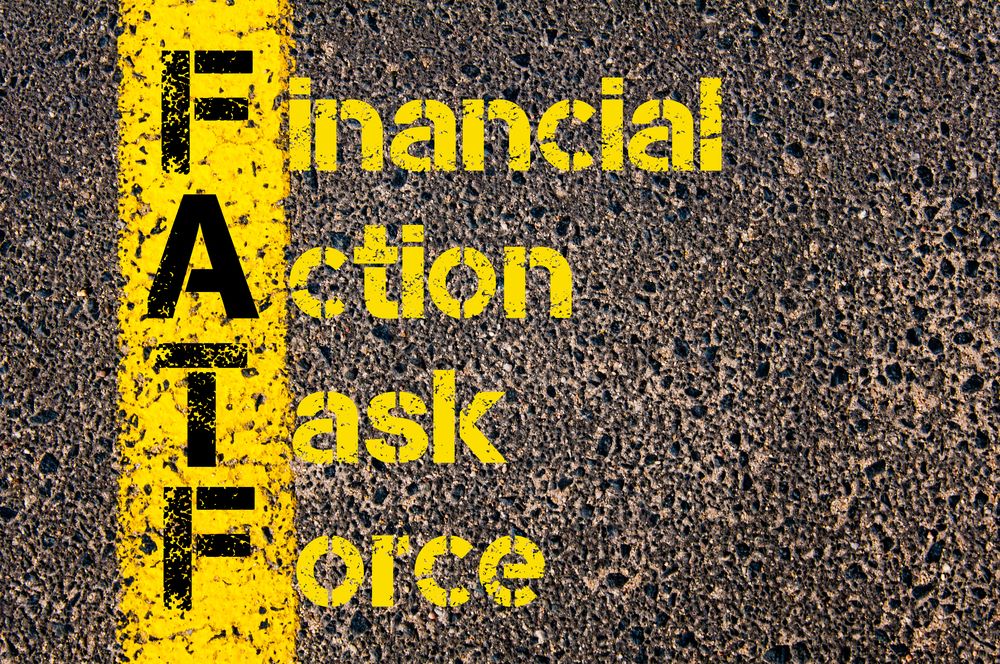
Ever feel like the privacy coin world is caught right in the crosshairs of global regulators? You’re not imagining it. From the US to the EU and all the way across Asia, lawmakers are tossing privacy coins under the microscope, desperately trying to draw lines between personal rights and public safety.
The Biggest Concerns Regulators Have
Why all the fuss? The repeat offenders for regulator anxiety are always the same: money laundering, terrorism financing, and tax evasion. These aren’t just buzzwords for headlines—they drive real action. When the Financial Action Task Force (FATF) highlights privacy coins in their reports, exchanges and governments start making moves.
- Money Laundering: In 2022, the European Union pointed directly at privacy coins in their anti-money laundering package. The thinking? Fully anonymous money makes it tough to trace funds—as if that’s an open invite for the bad guys.
- Terror Financing: The US Treasury warned about the “national security risks” of coins like Monero and Zcash potentially masking illegal fundraising.
- Tax Evasion: With privacy-enabled transactions, governments worry billions in taxes might go missing. Japan actually banned any privacy coins outright back in 2018 as part of this concern.
“There is a balance to be struck between protecting personal privacy and ensuring we do not create new opportunities for criminals,”
– UK’s Financial Conduct Authority, 2023
That tension is everywhere—whether you’re holding $20 in privacy coins or running a multi-million dollar exchange.
Existing Regulations
Just in the past few years, things have shifted fast. Here’s how storms are brewing:
- The Travel Rule: Exchanges in places like the EU, Singapore, and Switzerland now require the sending and receiving parties’ details for crypto transfers above a certain threshold. This is rough news if your project is built on anonymity.
- KYC (Know Your Customer): It’s almost standard now for exchanges and wallets to demand personal info. Binance, Kraken, and even smaller platforms have delisted Monero or Zcash in several jurisdictions, just to avoid regulatory headaches.
- Bans & Restrictions: South Korea blocked trading of privacy coins on exchanges as early as 2021, and Australia followed suit soon after. Even in the US, while there’s not a clear outright ban, the legal pressure is enough to make most platforms think twice before listing these coins.
A recent study by CipherTrace found that by 2023, over 70% of the world’s large exchanges had either restricted or completely disabled privacy coin trading. So, the message is spreading loud and clear.
Law Enforcement and Privacy Coins
Alright, but are privacy coins actually “untraceable”? This is where things get interesting.
Despite all the headlines, authorities have had some luck—albeit limited—tracking privacy coin movement. In 2020, the US Internal Revenue Service (IRS) offered a whopping $625,000 bounty for anyone who could crack Monero’s privacy. That’s how tough these nuts are to crack.
- Chainalysis & Analytics: While tracing is possible for coins like Dash or Zcash (if users don’t enable every privacy feature), Monero is a much bigger headache. Most blockchain forensics firms still admit they can’t track XMR with typical methods.
- Targeting the On- and Off-Ramps: Law enforcement agencies focus more on finding weaknesses in exchanges, wallets, and user mistakes, instead of trying to break the coin’s tech itself.
One report from Europol summed it up: “With advanced privacy features, monitoring is next to impossible unless users slip up during withdrawal or deposit.” Human error or weak KYC rules are the usual entry points—not some genius code-breaking.
All these new regulations and cat-and-mouse games are putting real pressure on privacy coins. But the crypto world does not back down easily. Curious about how the developers (and the whole community) are fighting back and adapting to all this? You’ll want to check out the next part, because it’s full of creative, bold moves you won’t believe.
How Privacy Coins Are Adapting
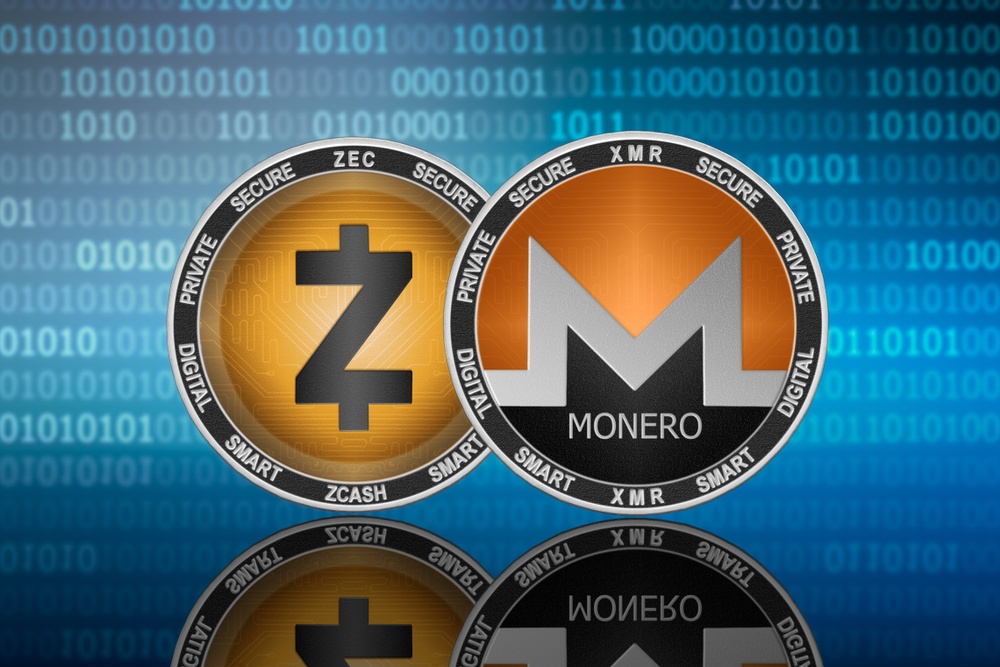
Every corner of the crypto world moves fast, but privacy coin projects are like the Formula 1 teams of innovation. The pressure from new rules hasn’t slowed things down—it’s sparked some smart, gutsy responses. Here’s a peek at how privacy coins are tweaking, building, and crowdsourcing their way forward.
Tech Upgrades
Developers of privacy coins never just accept the status quo. They’re rolling out updates at a pace that’s hard to match. Just look at what Monero’s crew is doing:
- Monero upgraded its “Bulletproofs” tech last year, cutting transaction sizes and fees while keeping privacy airtight.
- Zcash added Halo 2 zero-knowledge proofs, removing trusted setups and taking privacy up a notch for every user.
- Firo (formerly Zcoin) introduced Lelantus—a protocol that gives users full privacy for amounts and origins, with simple math and without heavy trust assumptions.
This isn’t just theoretical stuff, either. The Global Financial Integrity report in 2023 called Monero’s stealth tech “the most resilient to de-anonymization efforts,” showing that the upgrades do make a difference in the wild.
“When freedom is at risk, innovation kicks into overdrive.”
Embracing Compliance (Or Not)
Here’s where things heat up. Some privacy coin teams are trying to bridge the gap with regulators—they don’t want to be outcasts. For example:
- Zcash offers both transparent and shielded transactions, letting exchanges and users choose how private they want to be. That’s helped it stay listed on more platforms, with Gemini exchange publicly supporting privacy coins that follow evolving legal standards.
- Beam has toyed with opt-in compliance features—tools that let users reveal transactions to auditors or authorities if needed. It’s a balancing act, but it’s winning Beam some support in places where outright secrecy is a problem.
On the flip side, Monero’s community is standing stubborn: “Privacy is non-negotiable.” No opt-outs, no backdoors. This approach costs them exchange listings sometimes, but it also wins hardcore believers who demand real privacy, no matter the risk.
Community Efforts
It’s not all tech wizards in basements—regular users are stepping up, too. There are grassroots campaigns to teach best practices, like using Tor with wallet apps, mixing coins, or supporting decentralized exchanges. Here’s what’s actually happening:
- There’s a growing movement around P2P privacy trading, using platforms like Haveno and Bisq, letting users trade Monero and others without ever needing a centralized gatekeeper.
- Advocacy groups like Coin Center are pushing hard for the legal right to privacy in crypto, sending letters to lawmakers and helping shape the debate from the ground up.
- Open-source wallets are popping up with easy privacy toggles, tutorials, and community support threads that show privacy isn’t just for coders—anyone can learn to use these tools.
It’s impressive how quickly this community adapts—not just defending privacy, but improving access for people in countries where even basic financial freedom is shaky.
So, can privacy coins and regulators ever get on the same page, or is this a tug-of-war with no end in sight? The next section is where the real standoff comes to light. Want to see what governments are really asking for (and what might be next for all of us)? Don’t miss what’s coming up—you’ll want to hear this.
What Do Regulators Actually Want?

Regulators are the relentless rain on privacy coin parades lately, but what’s their real endgame? It’s easy to picture endless red tape or angry lawmakers wagging their fingers, but the reality is a little more nuanced. Let’s walk through what authorities really expect from the privacy side of crypto—and whether there’s any hope for compromise.
Talk of Bans: How Real Are the Threats?
The word “ban” is tossed around a lot, especially when news breaks that another exchange has dropped Monero or Zcash. It’s enough to spook any holder. But is a blanket, global ban actually on the horizon?
- Europe: The EU’s MiCA framework flat-out excludes “anonymous” coins from licensed trading venues, but doesn’t criminalize owning them. So, does “unlisting” mean extinction? Not quite.
- South Korea: Privacy coins can’t be listed on exchanges, period. Yet, people still find ways to use them—peer-to-peer, DEXes, even OTC desks.
- US & UK: More pressure on compliance than bans. Take Binance and Kraken dropping privacy coins in certain markets—not because they were outlawed, but because red tape makes listing them risky.
According to a FATF report, only 17% of countries ban privacy coins outright. The rest? They’re dialing up the pressure but not pulling the trigger.
“The more laws and order are made prominent, the more thieves and robbers there will be.” — Lao Tzu
That quote hits differently, doesn’t it? When privacy gets squeezed, the demand for real privacy might just go underground—pushing users toward even more creative solutions if bans get too heavy-handed.
The Case for Coexistence
Believe it or not, there’s proof that privacy coins and regulators might not be total enemies. Think of Japan: While exchanges were forced to delist privacy coins, the government also left doors open for legal discussion and future tech upgrades.
- Some projects are talking about “view keys” or audit options—a way users can prove their transactions are legit if needed. Zcash, for instance, has promoted selective disclosure as a possible compromise.
- Hardcore privacy fans might roll their eyes, but this kind of middle ground could convince authorities to leave the lights on for compliant privacy coins.
A few regulators have even admitted privately (though rarely on the news) that not all privacy coin holders are criminals. Some actually see the right to financial privacy as a modern necessity. The challenge is making that privacy auditable if you’re ever questioned—without blowing it up for everyone.
Impact on the Average Holder
Here’s the part most people care about: If you’re just a regular crypto user who wants control over your financial footprint, what does all this mean for you?
- You might face more hurdles buying or trading privacy coins on big exchanges, but many smaller or decentralized platforms are still game.
- Buying coffee or paying friends in Monero? Technically, in most countries, you’re not breaking any laws—but expect it to get trickier to move in and out of fiat.
- Real story: A friend in Switzerland had no trouble paying taxes after cashing out XMR, because he provided receipts and showed his wallet history upon request—even though Swiss rules are famously strict.
Privacy coins aren’t just a magnet for would-be lawbreakers. Many people just want peace of mind, less data leakage, and a fair shot at digital self-sovereignty.
So as regulations tighten, there’s a push and pull: How much privacy will governments actually ever allow? And will users accept watered-down versions, or demand the real thing in new forms?
Is the game over for true privacy in crypto, or are we about to see the industry’s most clever pivot yet? Stick around—because what’s coming next might just change everything you thought you knew about the future of privacy coins.
Exploring Predictions for 2025 and Beyond
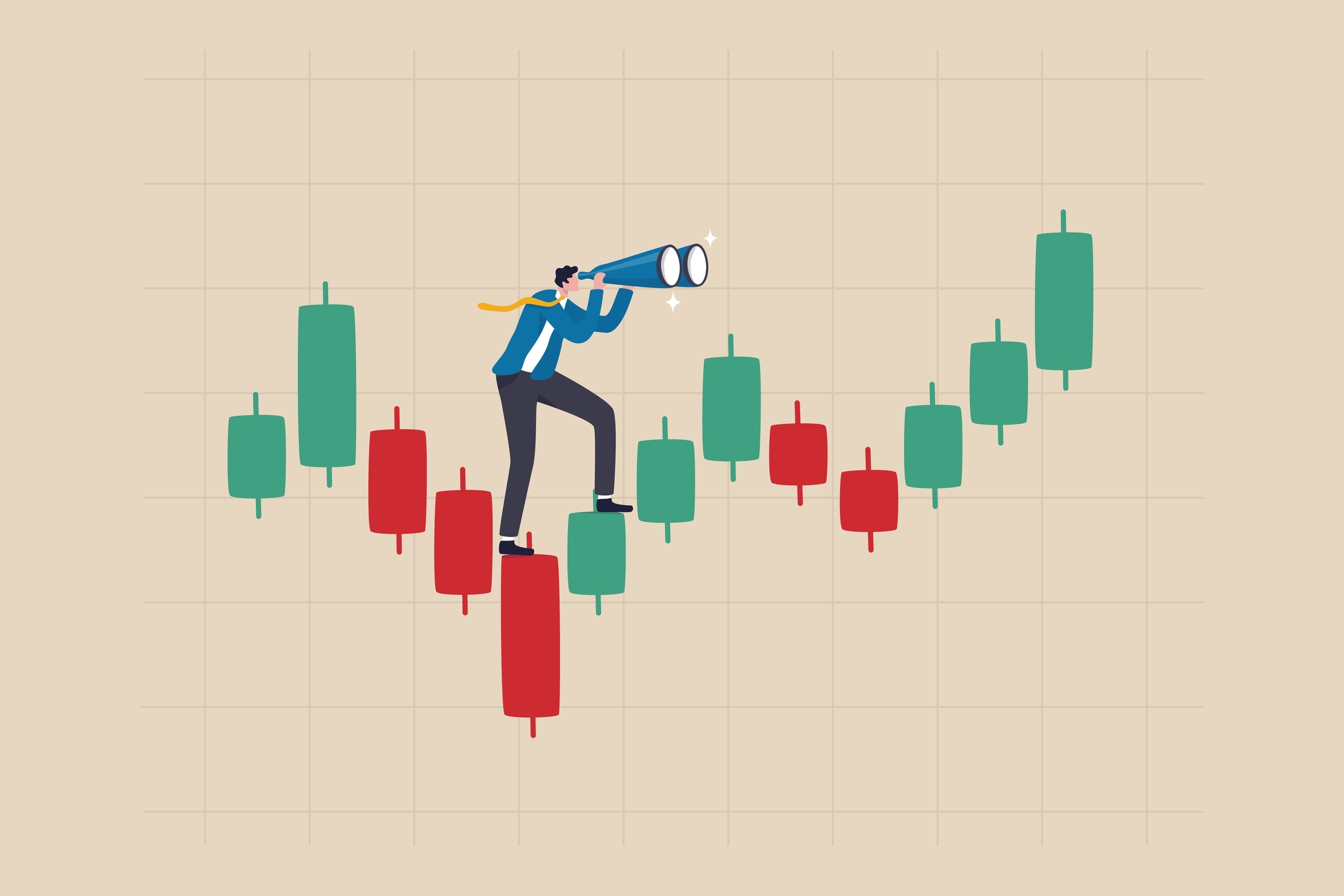
If you’ve been watching the privacy coin space as closely as I have, you’ll know there’s no shortage of opinions about what’s coming next. Every week, I get messages asking: “Will Monero or Zcash still be around in two years?” or “Is the golden age of privacy coins over?” Let’s look at some of the boldest predictions—and why things may not play out as you’d expect.
Will Privacy Coins Survive?
There’s this air of suspense right now, almost like we’re all holding our breath. Some experts are convinced that tightening regulations will squeeze privacy coins out for good. We’ve already seen exchanges like Binance and OKX boot privacy coins from their listings after local crackdowns in Europe and Asia—hard to ignore, right?
- Scenario One: Blanket bans on privacy coins have happened in places like South Korea and Japan, so sure, the risk is there.
- Scenario Two: Stricter rules, but not a total wipeout. Think more KYC, more monitoring, and—for better or worse—selective access depending on where you live.
- Wild Card: A strong comeback. Every time regulators get tougher, the privacy community gets creative. Just look at how Monero has kept chugging along, despite everything thrown its way. In 2023, its transaction count actually grew by over 30%, according to Messari! That says a lot.
“The genie is out of the bottle—privacy tech can’t be uninvented.”
That’s from an anonymous dev interview I read last month. It stuck with me. Even if regulators lock the door, privacy coins may just find another window.
What Will Drive Change?
This is the tug-of-war everyone’s watching. Is it faster lawmaking or smarter tech that will tip the balance? There are already signs that governments are ramping up compliance requirements (think the EU’s latest AML proposals), but the tech side isn’t slowing down either.
- Government Pressure: The rise of on-chain surveillance tools (like Chainalysis) is making it easier for authorities to track public blockchains. Privacy coins are always in the crosshairs—but how far can regulation go if people can transact peer-to-peer, off the grid?
- Tech Innovation: In 2024, Zcash’s Halo proving rolled out, which allows for zk-SNARKs with zero trust setup and lower fees. That’s a mouthful, but it’s huge for privacy. Don’t count out what these headstrong dev teams are cooking.
Here’s the kicker: As soon as one method is squashed, three more creative solutions pop up. It’s a whack-a-mole game regulators might never fully win.
The Role of New Privacy Tech
If you want a front-row seat to the future, watch what’s happening in cryptography labs right now. Researchers and privacy coin builders are taking the challenge seriously:
- Zero-Knowledge Proofs (ZKPs): These are getting easier to implement, cheaper, and faster. We’re seeing experimental projects like Aztec bringing private transactions onto Ethereum itself—could that become the playbook for privacy coins that want to stick around?
- Decentralized Mixers: After governments took down Tornado Cash, a new wave of open-source mixers that resist censorship are emerging. 2025 could see these become the backbone for “privacy as a service.”
- New Layer 2 Solutions: Some teams are working on privacy-by-default sidechains and more modular upgrades that could blur the line between private coins and regular cryptos.
Still, nothing’s guaranteed. Will regulators embrace audited privacy protocols if enough honest folks scream for it? Or is this going to force crypto privacy back underground, where only the most stubborn users dare to tread?
One thing’s clear—predicting the privacy coin future is equal parts tech, politics, and pure drama. Wondering how to keep up with these twists and turns? In the next section, I’ll point you to the best resources and news hubs I trust to make sense of it all. Or maybe you’ve got your own secret strategy for staying ahead? Either way, you’ll want to keep reading…
Other Blogs and Forums
Sometimes, you want more than just news—you want to trade stories, ask questions, or grab the latest rumors before anyone else. That’s where communities come in. Here’s where I find some of the best discussions:
- Reddit: Subreddits like r/privacycoins and r/Monero have tons of user-driven content: technical Q&As, market rumors, and tips on staying compliant.
- BitcoinTalk: forums always have an ongoing thread or three about the latest privacy coin upgrades, new wallet features, and regulatory news.
- Telegram & Discord: Look out for project-specific groups (Monero, Zcash, Pirate Chain, etc.) where you can talk directly with the devs and other holders about what’s coming next.
Staying Up to Date
If you want to keep your edge—and your privacy—there’s no skipping homework. But you don’t need to grind through boring legal docs. Here’s a quick way to stay ahead of both regulators and new privacy tech:
- Set up Google Alerts for terms like “privacy coin regulations” or “crypto compliance 2024.” You’ll catch breaking stories before they hit the mainstream.
- Join email updates from official project sites (Monero, Zcash, Beam) to hear about tech upgrades and compliance tips straight from the source.
- Check crypto news aggregators like CoinDesk or The Block, but filter by “regulation” or “privacy” tags for the latest targeted analysis.
- Follow developers and crypto lawyers on Twitter for instant thoughts about major moves and policy changes. You’ll spot trends early and maybe even find alpha before the big players do.
No one’s got a crystal ball, but tracking these resources can help you spot the next shift—whether that’s some wild legislative curveball or a stealth tech rollout that changes everything overnight.
Ready to see what all this means for your own crypto journey? In the next section, I’ll unravel the real-world impact and what decisions you might want to make, even if you’re not a privacy die-hard. So, are privacy coins about to break out or burn out? Let’s keep going and find out together…
Where Does This Leave Us?

So here we are, after following the twists and turns of privacy coins in this ever-changing crypto landscape. We’ve seen tech upgrades, talked regulations, checked the headlines, and looked at how different countries are reacting. The big question everyone keeps asking is: do privacy coins really have a future? Or are we just seeing the end play out in slow motion?
Should You Still Care About Privacy Coins?
Let’s be real for a moment: privacy in crypto affects all of us. It’s not just about hiding shady transactions or “the dark web.” It’s about everything from protecting your personal financial info from data leaks, to shielding yourself from targeted hacks, to simply not wanting your neighbor to see how much you spent online last week.
If you ever bought something with Bitcoin, you know that address histories are public. That means if you reuse addresses or share them for payments, people could easily look up your balance or spending history. This is where privacy coins still make a lot of sense, no matter how many rules and bans pop up.
And hey, it’s not just paranoid users who care about this. Big research by Elliptic in 2023 showed that while privacy coins only make up about 1% of all crypto transactions, they’re hugely popular for anyone who truly values confidential payments. Not to mention, businesses in high-risk areas sometimes use privacy coins to protect themselves from economic instability or targeted attacks.
Final Takeaways: What to Watch, What to Avoid
- Keep an eye on regulation news. Changes can happen fast, and as we saw with Binance and OKX delisting Monero and Zcash in several regions, your options may change overnight.
- Research your country’s stance. What’s allowed in one place may not be in another. Some regions (like Japan and South Korea) have cracked down harder than others.
- Test the tech before jumping in. Not all “privacy” coins are truly private by default — for example, Zcash private transactions are optional, while Monero is private all the way down the stack. Always check what’s really happening behind the scenes.
- Stay educated. Read up on zero-knowledge proofs and new improvements in privacy tech (like Firo’s Lelantus or upcoming protocol updates for Monero). These upgrades could keep privacy coins relevant even under heavier restrictions.
- Be cautious of scams and copycats. The world of privacy coins has its fair share of hype coins that don’t deliver on their claims. Stick to projects with a proven track record, strong community, and open development.
For now, privacy coins aren’t going away — but the game is changing quickly.
Looking Ahead: Your Move in Crypto’s Privacy Debate
I don’t have a crystal ball, but here’s what I’ll be watching closely next:
- How the top privacy coins adapt their tech to meet (or dodge) new compliance demands.
- Whether regulators find a middle ground that keeps some privacy features alive for law-abiding users.
- What the next wave of privacy protocols might bring. Zero-knowledge rollups, mixnets, or even hybrid coins that flip between transparent and private—these are all on the table.
This isn’t just background noise in crypto; it’s at the center of the debate about what digital money should be. Should it behave like cash, where privacy is a default? Or more like a public bank ledger?
“In a world that’s watching closer than ever, privacy is a right that needs to be protected, not an automatic red flag.”
No matter which side you’re on, the next year or two are going to be wild. I’ll continue keeping an eye on which projects step up, which policies actually get enforced, and where regular users like us stand in the middle of it all.
Got your own thoughts or want to stay in the loop? Bookmark the Cryptolinks News blog. Privacy coins aren’t done yet—and neither is this story.
